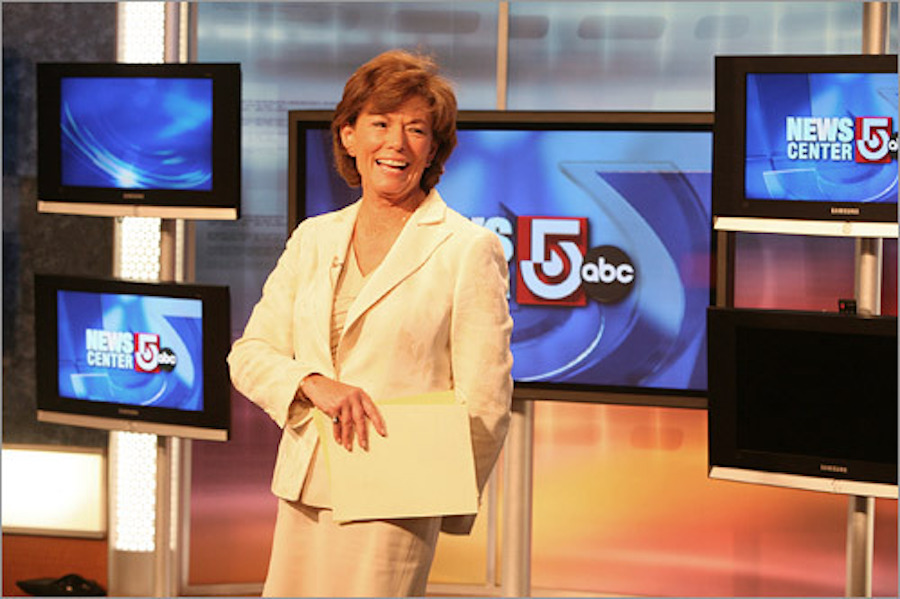Lessons from the “Golden Age” of Boston TV news
The Boston television market has a storied history. In 1981, The New York Times declared in a headline about WCVB-TV: “Some some say this is “America’s Best TV Station.”
But Channel 5 isn’t Boston’s only television station with an impressive past, as former television critic Terry Ann Knopf noted in her recently published book, “The Golden Age of Boston Television.”
“Part of the problem and why the local golden era died was that the market conditions changed,” says Knopf, whose book highlights Boston television from the 1970s to the early 1990s. Knopf, who also teaches journalism at Boston University, was able to pinpoint what created this Golden Age in the Boston market.
“There were a series of conditions all of which happened around at the same time, which brought about the Golden Age,” she says. “The first was we had what we called the ‘Massachusetts Miracle,’ when we had enormous amounts of good economic news, particularly because of the high tech industry on Route 128, so there’s lots of money around for everybody, and also the TV stations had lots of money to spend.”
Channel 5 and Channel 7 had local owners at points during this time period which Knopf believes helped them to focus on the local community and local programming.
Almost as important as how viewers got their news was who delivered it. From Liz Walker and Jack Williams on WBZ-TV to Natalie Jacobson and Chet Curtis on WCVB, the Boston anchors were local celebrities in their heyday.
Experimentation has largely disappeared
Knopf said that back then stations experimented with daily talk shows, special topics programs, and international coverage which has largely disappeared, although the local stations do have investigate units and WCVB still produces a daily newsmagazine, “Chronicle.” WCVB and WFXT-TV Boston 25 News also recently produced prime-time news programming.
Though Knopf believes returning to a Golden Age for local television in Boston seems like a far off dream, she says that small steps can be taken to help return the city’s television market to its peak viewership.
“If there for some wonderful reason to return to local ownership, that would be terrific. And if the market conditions get better, actually the stock market is way up but maybe the time is right to do more local programming,” said Knopf. “But there needs to be a lot of pressure by the public and the media, and it doesn’t seem to be there anymore.”
Photo: WCVB’s Natalie Jacobson.
- Lessons from the “Golden Age” of Boston TV news - March 29, 2018






Congratulations on your excellent report –I only wish you could have blocked out my double chin. More seriously, I’m pleased that you drew attention to how good Boston stations were and how bad (i.e. mediocre) they have mostly become.
Having said all this, kudos to Ch. 5 which has distinguished itself with excellent investigative report on the latest state police scandal. I suspect your professor may have had something to with it; if nothing else, it was a reminder of how good –and important–our local stations can be. Let’s hope more is coming from WCVB and all the Boston stations. Who knows, perhaps one day one of the Boston stations will have the bright idea of having a live, local talk show!
Best of luck,
Terry (Ann Knopf)